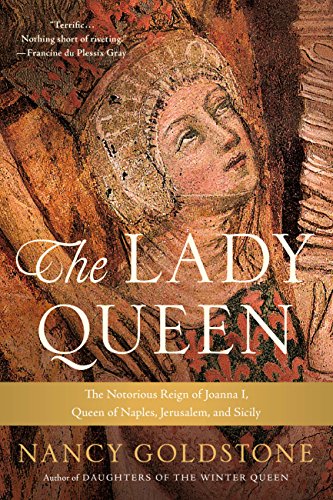
I’m on a 15 game losing streak to my eleven-year-old son. I’ve amassed an overall record of 7 wins and 29 losses. I have been outscored 79 goals to 44 goals. I fear the worst. I fear I can’t compete with my son in Xbox hockey. Is it his younger mind? Quicker thumbs? What is it that skates him so effortlessly into the winners’ circle and me into the trash heap of depressing video incompetence?
I’m not proud to say it, but last night I stayed up late practicing Xbox hockey. After My wife and kids crawled into bed and drifted off to sleep, I a 47-year-old male plopped down in front of the screen and began working the controls late into the night in the fleeting hope that I might learn how to beat my son in a video game.
I’m competitive. It’s in my nature, I like to win but last nights events brought a flurry of contradicting thoughts into my over-tired mind this morning. Christianity vs. Competition. It seems to me that Christianity seeks to squash the competitive nature in people. You help the weak you don’t crush them. You practice gentleness, goodness, kindness and self control. How do you defeat someone in a battle, business venture, or sport with gentleness? You don’t. In life, it seems like the point of Christianity is to lose. “If you save your life, you will lose it,” says Jesus. Yes, Jesus by sacrificing himself won big for all humanity. But how does this grand life-shaping narrative translate into everyday life? Does it mean I sacrifice success in business so that others can win? When we are told, “the first shall be last” and “the greatest among you, will be the servant of all,” how does this not put us into direct conflict with our ambitions to be the best, to win, to be the champ, to be the dominate force in some field or vocation? The answer is not readily apparent to me, and that is a bit disconcerting.
I am compelled by the stories of winners. Wayne Gretzky, George St. Pierre, Winston Churchill, Tom Brady, who isn’t inspired by the successes of these people? Winning rocks, losing sucks! If I excel in business, I will put out of business the companies that are not as good as mine. If I start a church and mine is better, people from other less impressive churches will naturally come to be a part of mine. If I’m a hard worker, then more money goes into my pocket, which means less for others as a result. In life I succeed in direct proportion to others failures. That’s how life works. We all have to be ok with that. Is Christianity ok with that?
Winning for the Christian amounts to loving well all people, including one’s enemies. Since loving means sacrificing for the good of others (including those enemies), then I wonder if a Christian person can be successful in any measurable sense in the free market western world and still live a life congruent with the Christian story?
To win in life, you have to be ambitious, you have to compete, you have to make hard decisions which benefit you and not others, and you do this on purpose. Getting the promotion, getting the girl, growing your sphere of influence. It’s all the same, any increase I experience comes at another’s decrease. Is Christianity really ok with this? Does the Christian story allow for the opportunity to fight and win? I’m not sure it does. There is a reason why pacifism is a point of view embraced predominantly by only Christians. There is a reason why Christianity on the face of it looks more like Communism than capitalism. It’s at least part of the reason why asceticism became such a thing in Christendom. Better to withdraw from the world than to engage in the rumble tumble stuff that makes it go round.
For me, pacifism, Communism and asceticism don’t ring true. I want to compete with people and win. I want the thrill of victory while risking the agony of defeat. I sometimes wonder if the Christian story that I have shaped my life around has held me back from being as ambitious as I am naturally inclined, to my detriment.
Sir Winston Churchill said one time to a great admirer of his. “We are all worms, but I do believe that I am a glow-worm.” His sense of destiny fuelled his ambition. This created in him an undying will to win. Churchill was a formidable foe to any who opposed him. This competitive and combative nature undoubtedly saved the Western World from tyranny. Does the Christian story have the capacity to celebrate men like Churchill? I think it needs to if it doesn’t.
As for me, game number 37 happens today. I’m hoping for a win.






5 Responses
I won
Hi Dennis! Thanks for the blog, I really enjoyed reading it.
“If I’m a hard worker, then more money goes into my pocket, which means less for others as a result. In life I succeed in direct proportion to others failures. That’s how life works.”
I have an issue with this reasoning, because I think it’s very important to understand that not all competitions are zero-sum. I think we often have a bias towards seeing competitions as zero-sum even when they are not (https://en.wikipedia.org/wiki/Zero-sum_game). In the complexities of real life, they are almost never actually zero-sum, especially for someone who is competitive but truly well meaning.
If you out compete someone for a promotion – yes – that absolutely means someone else didn’t get it, but that is only one small piece of the story. If you truly are a better leader and boss than that other person, a lot of people under you will benefit because of your competitive nature. If you then go on to help build a more successful company, it very well might cause other companies to be less successful, or even go out of business, but if you are providing a better good or service to the world than that other company was, the net result could be very positive. Beyond that, often one company’s success actually helps other companies, not just those in their supply chains and what not, but even competitors can benefit. If you help build a great church that people love to go to, it doesn’t mean you are directly pulling people out of other churches, instead maybe you help to transform a culture to be Christ-centered, and then all the other churches would actually benefit.
This can obviously go in negative directions as well, but in the end the point is just that the game certainly isn’t zero sum, especially for people actively trying to help others. The success of one person can lift up everyone around them.
In fact, you later provided a perfect example that makes this point, success is in fact not in direct proportion to others failures.
“This competitive and combative nature undoubtedly saved the Western World from tyranny. Does the Christian story have the capacity to celebrate men like Churchill? I think it needs to if it doesn’t.”
Churchill’s competitive nature certainly did mean that those he was competing against didn’t make it as far as they might have, but the net result for humanity you could certainly argue was a huge positive. If he hadn’t been as competitive, as you state, the world might be a much worse place.
Thanks,
Sam
Hi Sam, thanks for your input, I appreciate it. I recognize that competition is not always a zero-sum game. The best grades I ever got at university are because I went head to head with a super competitive super smart girl, both of us benefited tremendously as a result of the competition. That’s just one of a hundred examples I can think of. Even in the case of playing video games with my son I’ve gotten better. The “healthy competition pulls us all up” idea is true in many cases, so no argument there.
I guess the real struggle comes in trying to understand Jesus’ teachings through a capitalistic competitive lens. I’m not entirely convinced that the summation “Competition makes everyone better” was ever Jesus’ message — does that idea come out in any of Jesus’ teachings or life? Doesn’t seem to, it seems more the opposite. And so we have incongruence with what I perceive as better (competition) and what Jesus teaches (give up your life including your wealth for the good of others) — That’s what this blog is really wrestling about.
I also remain skeptical of the deeper motivations of the few who sit atop their mountains of wealth and glibly say see “we have made everyone better” — Its a cheap justification to live in opulence, while everyone else scrapes to make it by. The real capitalists, the successful ones know the price of victory, they know what they have done to accomplish their greatness, and this includes the world of successful churches, I’ve seen the dark underbelly. Which is probably why Jesus says the “greatest among you will be the servant of all” — which means you won’t win, and that sucks, or does it? And that’s why I wrestle with this whole thing
For sure. I should have been clear that I wasn’t trying to offer a defense of capitalism, although someone doing that might say similar things. I was just pointing out that there are ways to structure a competition such that one person’s success doesn’t mean that someone else has to lose. Arguably that should be the goal. Your success doesn’t have to be, and I would say shouldn’t be, in proportion to others failure.
I share your skepticism of the motivations those at the top… well frankly it’s easy to be skeptical of the motivations of just about anyone. That being said, there are plenty of people who I think truly do have sincere motivations, both “successful” and otherwise. For example, the POTUS, Donald Trump. Just kidding!! 🙂
Jesus certainly wasn’t a capitalist, but I don’t really think the idea of giving up your life and wealth for the sake of others is necessarily implying competition or success is bad… depending on how you define it of course. Success in terms of acquiring wealth for your own enjoyment seems pretty straightforwardly antithetical to the message of Jesus, obviously not a great way to spend your life. There are plenty of people who claim to have made it their goal in life to get a high paying job so that they will have more to give to those in need, you may have heard of Peter Singer and the whole effective altruism movement. If done sincerely, which you can be skeptical of individual people but there is no reason it couldn’t be done, that does seem to be a pretty straightforward way of reconciling competition with giving away of your life and wealth.
Ephesians 4:28 does speak to this idea as well, at least somewhat. I’ve also started to notice how frequently Paul uses athletics and races as metaphors for the Christian life. Probably wouldn’t want to take that too far, but if competition is a straight up bad thing, it doesn’t seem like a very good metaphor.
Not saying I don’t see any conflict here, especially if you are thinking of success and competition in a traditional capitalistic framework, but I think they certainly can work together.
My Dad was in Amway for a while and that was their big pitch “win big so you can have lots of money to help other people with” In theory, this can be done, but in reality what happens most often is that the end (give wealth away) gets dissolved into the means (make lots of money)
The conflict between that truly competitive nature that is in my heart and Christianity remains in my mind, but your thoughts are helpful to be sure. Thanks so much for taking the time to interact, that’s the whole point of Den’s Wrestlings. Be well.